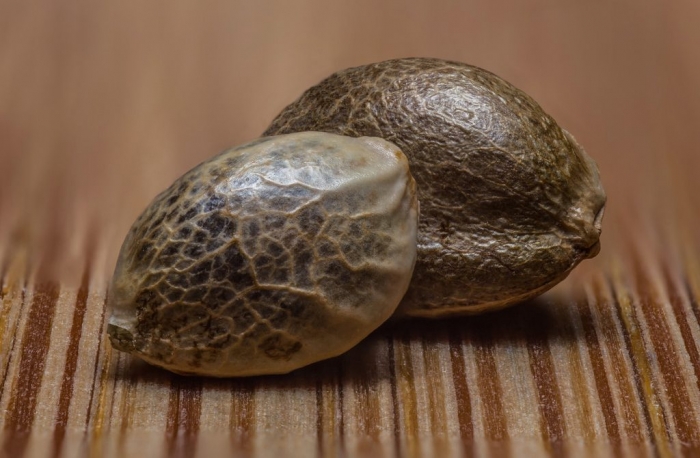Canada on Course for Record Hempseed Crop in 2017

Hempseed production in Canada may reach record levels in 2017, according to an industry report that projects up to 150,000 acres planted in Western Canada.
Hempseed production in Canada may reach record levels in 2017, according to an industry report that projects up to 150,000 acres planted in Western Canada this year.
There is some concern from farmers that this could create an excess of hempseed, causing prices to crash. Health Canada figures show just over 33,000 acres in production in 2016, after excess supply from previous years drove demand down. Over 100,000 acres were in production in Canada in 2014, and about about 85,000 in 2015. 1,195 licenses were issued in 2016 to conduct regulated activities with hemp in Canada.
Acreage has been increasing this year after 2016 saw an explosion in exports of hempseed from Canada to North Korea after demand there surged as consumers began replacing fish oil with hempseed. Sales surged from from $600,000 of exports to $45 million this year, according to Russ Crawford of the Canadian Hemp Trade Alliance. However, competition from China and the US is now driving prices down, and there is concern that many Canadian farmers will be unable to move excess hempseed.
“We are probably going to end up with way more than we need. I’ve been sounding the warning bell since early January about issues in the marketplace” said Garry Meier, president of Hemp Genetics International, which contracts hempseed production and provides agronomic advice for growers.
According to producer.com, hemp production contracts are at about 78 to 85 cents per lb. 1,000 lb. per acre would gross about $800 per acre. Returns on certified hemp are closer to $1.85 per pound.
As farmers become more experienced with hemp, yields also increase, creating more supply.
“Average yields have increased significantly over the last few years, and experienced growers tend to get better consistency and higher levels of performance,” Clarence Shwaluk, director of farm operations for Fresh Hemp Foods in Winnipeg, Manitoba, told grainnews.ca earlier this year. It’s not uncommon to hear of yields of 1,000 pounds per acre on non-irrigated lands in Manitoba and across the Prairies. Growers are getting more familiar with the crops and more growers are willing to take on the additional risk of a crop that is a little bit different to produce.”
Greg Herriott, President of Mettrum Originals, formerly Hempola, who has been growing hemp in Canada for over 20 years, says the boom and bust of consumer trends is nothing new in the agricultural industry. Herriot says his company has focussed on the domestic market and so won’t be directly impacted by any projected excess product for export, but says unpredictability can mean some farmers may not want to try a hemp crop again in the future if they find themselves unable to sell products they invested in.
“Large, serious farm producers, if they’re not moving their hemp and get a bad taste in their mouth, they’re most likely not going to cultivate it next year and will be looking for a different option for rotation.”
Moving forward, he says, the real opportunities for hemp farmers will be when they are able to harvest the plant for other uses beyond just seed, utilizing the stems for fibre and harvesting the plant to extract various cannabinoids other than THC. But this won’t change until the regulations are more streamlined, which is part of the newly proposed Cannabis Act to legalize and regulate marijuana in Canada.
“The industrial hemp regulations were drafted just over twenty years ago,” explains Herriot, ”and twenty years ago CBD wasn't’ on anyone’s radar screen in Canada. THC was the cannabinoid that was considered and highly focussed on in the regulations. So we need a pretty substantial update to these regulations, which are pretty much antiquated right now, to allow for the vegetative material that we can harvest and then do extractions on.
“It is a very high potential revenue stream and extra bottom line on the hemp harvest moving forward. Not just CBD, but all non-psychoactive cannabinoid extractions. I suppose the majority of the focus will be on CBD, but we don’t want to pigeonhole it because there’s so many other non psychoactive cannabinoids that I think, later on, we’re going to see some phenomenal opportunities and health benefits with these other cannabinoids.”
How the 2017 Canadian hemp crop turns out remains to be seen, but as cannabis regulations become streamlined over time, we could continue to see a trend towards more acres of hemp across Canada.
420 Intel is Your Source for Marijuana News
420 Intel Canada is your leading news source for the Canadian cannabis industry. Get the latest updates on Canadian cannabis stocks and developments on how Canada continues to be a major player in the worldwide recreational and medical cannabis industry.
420 Intel Canada is the Canadian Industry news outlet that will keep you updated on how these Canadian developments in recreational and medical marijuana will impact the country and the world. Our commitment is to bring you the most important cannabis news stories from across Canada every day of the week.
Marijuana industry news is a constant endeavor with new developments each day. For marijuana news across the True North, 420 Intel Canada promises to bring you quality, Canadian, cannabis industry news.
You can get 420 Intel news delivered directly to your inbox by signing up for our daily marijuana news, ensuring you’re always kept up to date on the ever-changing cannabis industry. To stay even better informed about marijuana legalization news follow us on Twitter, Facebook and LinkedIn.




